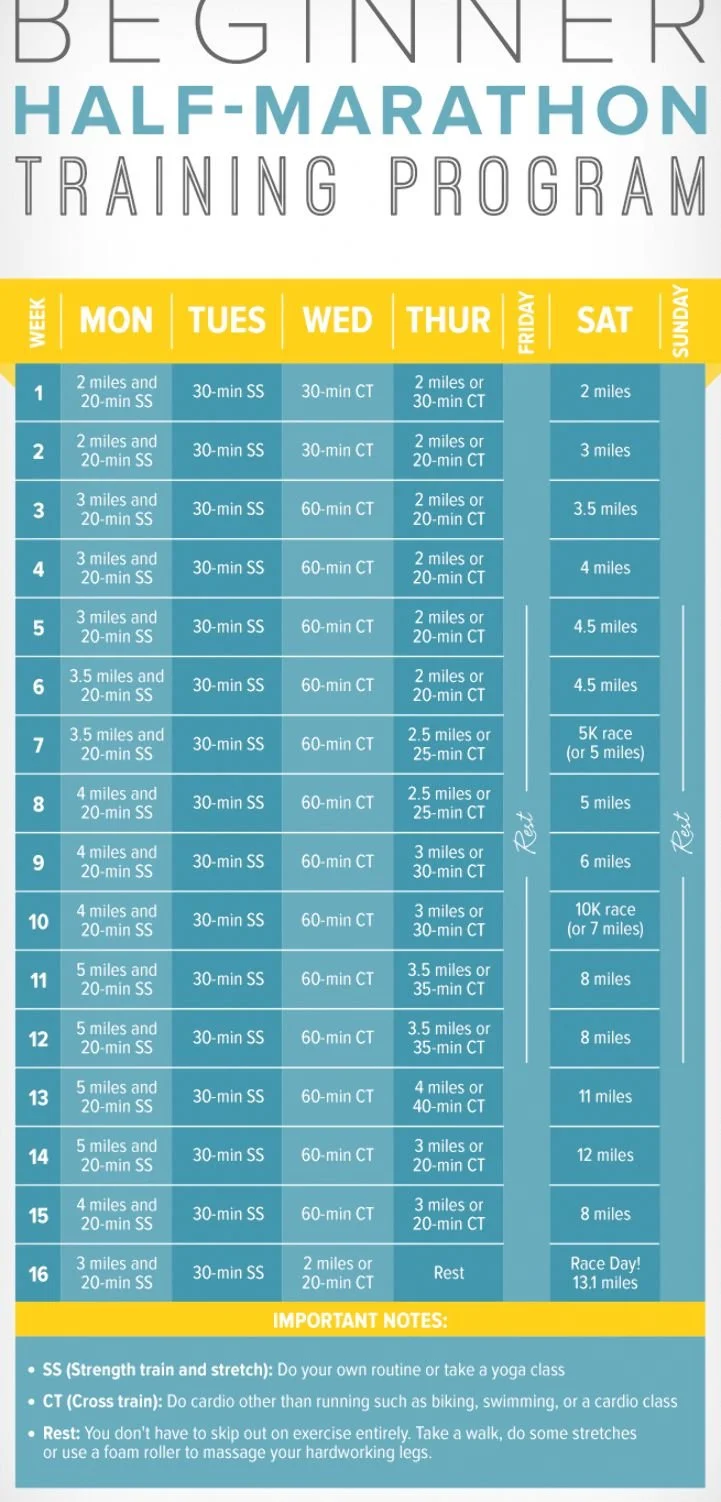A New Year and a Braver You: How to Face Your Fears This Year
It was recently Quitter’s Day (which always falls on the second Friday of January). Did you fall off with your goals for the new year. If so, you’re not alone. So what gives?
With manifesting going mainstream, we often think that positive thinking and intention-setting will get us to where we want to go. FALSE! Mindset is not enough. Neither is motivation. It takes action and taking the small step, day by day.
Think of it this way: You can't think your way into training for a half-marathon. You can have all of the positive intentions in the world but until you put on those shoes and do step by step, you won't find that movement towards your goal that you're looking for.
(And speaking of which, in case you want to run a half-marathon this year, I literally typed in half-marathon training for beginners when I started out). Here’s a good example of what a daily practice schedule would look like.
Why this matters and what we can do about it:
Forbes recently shared some key findings on resolution setting for 2024. In it, they reported that 37% of people plan to set New Year's Resolutions. However, we're lacking confidence in ourselves. While last year, 77% of respondents said they would keep themselves accountable to their goal, now only 20% say the same. What gives? We are losing confidence in ourselves! When we see that our motivation or willpower isn't "strong enough" we get disappointed with ourselves.
How do we counter this? We need to get comfortable with being uncomfortable this year! That means socializing when we have social anxiety, going to the gym when we feel tired, and setting the cookie down when it tastes so good. It's not about punishing ourselves (sometimes let's enjoy that cookie!), it's more about getting clear on our values and then making choices that align with those values--even if it's uncomfy to do so.
What's exciting: 55% say that improving their mental health in the new year is EQUALLY as important as improving their physical health. So a resolution for the new year may not just look like going to the gym (which is a double win for brain and body health), but also setting up a therapy appointment, starting to take medication or working with a naturopath, or getting sober curious to see how you can improve your "hang-xiety."
Now, 62% say they feel "pressured" to set a New Year's Resolution. No wonder we're failing if it's not in alignment with what we actually want. That's why it's important to get creative with our intentions and not live for the expectations of others. If it's a "should" resolution, it's not going to stick. This might include, "I should cut back on sugar," or "I should quit smoking." Ask yourself if you genuinely want to, though. Sometimes, the honest answer is "no" and we may need to give ourselves some grace that it may not be our season for making big changes. Like we said before, it's uncomfortable to make change and we don't always have the bandwidth for it. Ask yourself instead what you WANT to try changing and start there.
What's the main takeaway:
Set up a plan of action, keep it SMALL, TAKE steps, and REWARD yourself.
1. Write up what your changes are going to look like. Get your budget software in place. Have your therapy appointment on the calendar. Have your gym membership ready. The more you can have things documented and ready to go, the less opportunity there is for things to go awry. The more you have to think about it, the harder it is to do.
2. Take small steps: The smaller the better! We get worn out and defeated when we overdo it. So instead of training to run a marathon, start with a 5K. Instead of overhauling our eating plan, try to get an extra vegetable in.
3. Face the fear: Our brain is brutal. It will tell you all day that you're not good enough, you're not ready, and you can't do it. Our thoughts--including positive thinking--is not enough to overhaul this. Instead, you need to behaviorally show yourself you can be different. Take the active steps, rather than just the mental steps, to see that change is possible.
4. Reward yourself: You have to celebrate your wins! Don't be that harsh coach with yourself who never cheers when you get the goal. Honor your efforts and celebrate even the slightest wins. This will help build motivation to continue.
Drop in the comments what goal you’re working towards this year!


